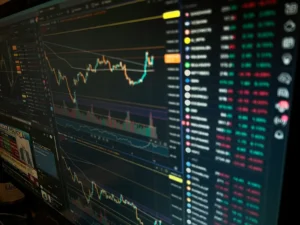
How Comprehensive Employee Screening Can Strengthen Workplace Trust and Safety
Building a safe and productive work environment requires more than just strong policies and training programs. At the core of any trustworthy organization is a workforce that has been carefully vetted for both qualifications and integrity. That’s where comprehensive employee screening comes into play, not just as a formality, but as a strategic tool for minimizing risks, ensuring compliance, and protecting both people and property.
In high-stakes industries such as transportation, healthcare, construction, and finance, skipping or rushing through background checks can open the door to costly errors, reputational damage, or even legal liability. But beyond compliance, screening reinforces workplace culture by sending a clear message: safety and accountability matter.
Contents
The Role of Screening in Regulated Industries
In regulated sectors, employee screening isn’t optional, it’s mandated. Employers in transportation must follow strict federal and state-level guidelines to assess workers’ fitness for duty. One critical aspect involves complying with DOT return-to-duty steps, a process designed to ensure that employees who have violated drug or alcohol policies complete proper evaluations, testing, and follow-up procedures before resuming safety-sensitive roles.
This level of screening protects the employer and the public. It reduces the risk of impaired drivers operating commercial vehicles or unqualified technicians handling sensitive equipment. Employers who cut corners in these scenarios may face fines, suspension of licenses, or exposure to lawsuits.
Even outside of transportation, industries with access to vulnerable populations or financial assets must take similar precautions. Verifying credentials, checking for criminal histories, and reviewing previous employment records ensures that only those who meet strict standards are entrusted with the organization’s responsibilities.
Building a Foundation of Trust From Day One
Comprehensive screening creates a foundation of mutual trust between employers, employees, and teams. When staff members know that everyone has undergone the same vetting process, it fosters a sense of fairness and accountability. They’re more likely to trust each other, follow protocols, and report violations when they arise.
Transparency during onboarding boosts morale. When new hires understand what’s expected of them and how their background was evaluated, they’re more likely to appreciate the integrity of the company’s processes. A consistent approach to screening across roles and departments eliminates favoritism and encourages a culture of meritocracy.
Trust, once earned, becomes a long-term asset. Employees who believe in the integrity of their coworkers are more engaged, collaborative, and less likely to leave due to workplace tension or safety concerns.
Screening Tools That Go Beyond Criminal Background Checks
While most employers associate screening with criminal history reports, the best programs take a multi-layered approach. Depending on the role, this might include:
- Identity verification and legal right to work
- Drug and alcohol testing
- Professional license and credential verification
- Motor vehicle record (MVR) checks for driving positions
- Credit checks for financial roles
- Social media and digital footprint reviews
- Personality or behavioral assessments
Each of these components reveals different dimensions of a candidate’s suitability for the role. A clean criminal record doesn’t guarantee a person is punctual or able to manage stress effectively, traits that may be just as important depending on the job.
Mitigating Legal and Financial Risk
The cost of hiring the wrong person goes beyond poor performance. In industries with safety concerns or fiduciary responsibilities, one bad hire can lead to workplace injuries, data breaches, fraud, or regulatory penalties. The U.S. Department of Labor estimates that the average cost of a bad hire can reach up to 30% of the employee’s first-year earnings.
Employers are liable for what’s known as “negligent hiring” if they fail to perform reasonable background checks and an employee later causes harm. Courts often view robust screening protocols as evidence that an employer took reasonable steps to prevent harm.
By investing in thorough screening upfront, companies can avoid the ripple effects of poor hiring decisions, including damage to brand reputation, customer trust, and employee morale.
Supporting a Safer Physical and Emotional Environment
Workplace safety encompasses more than just physical well-being. It involves creating an emotionally secure environment where harassment, intimidation, or unethical behavior is not tolerated. Screening helps prevent these issues by filtering out individuals with histories of violence, dishonesty, or disruptive behavior before they ever become part of the team.
In industries that rely on teamwork, close quarters, or vulnerable populations, such as caregiving or education, this emotional layer of safety is even more important. Employees should never have to second-guess whether their colleagues are trustworthy or qualified. Screening eliminates that uncertainty.
Making Screening Part of a Broader Safety Strategy
Comprehensive screening should be part of a broader organizational commitment to safety. It complements training, incident reporting systems, wellness programs, and performance evaluations. Together, these tools create a feedback loop that reinforces a culture of responsibility and care.
To be effective, screening policies must be transparent, well-communicated, and legally compliant. Employers should stay informed of changing regulations and use professional screening partners when necessary to ensure accuracy and privacy protections.
Trust and safety are not built overnight, but they can be undermined in an instant. By prioritizing comprehensive employee screening, organizations send a clear message about their values and expectations. The result is a workplace where people feel protected, procedures are respected, and everyone has a role in upholding a standard of excellence.


